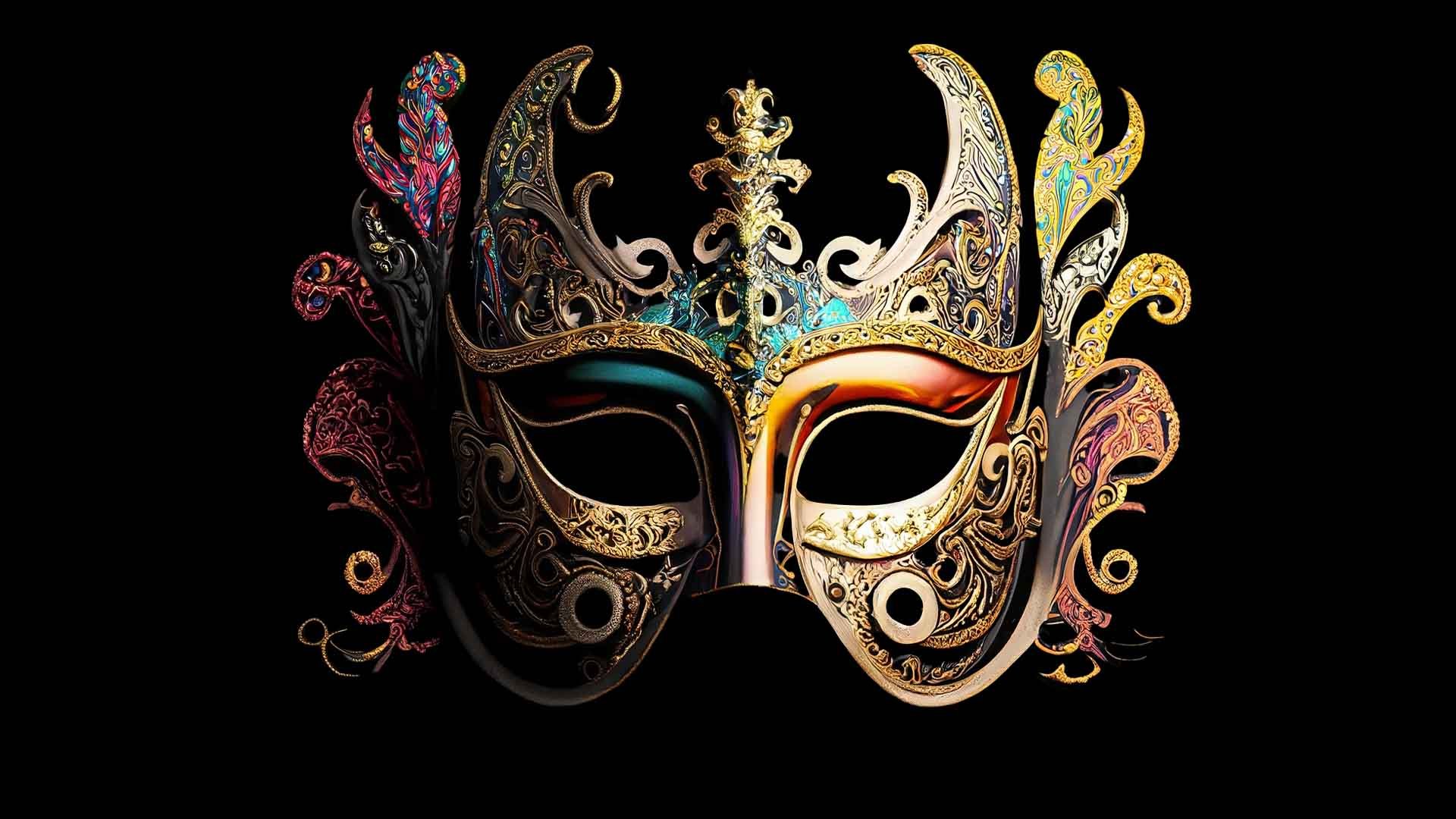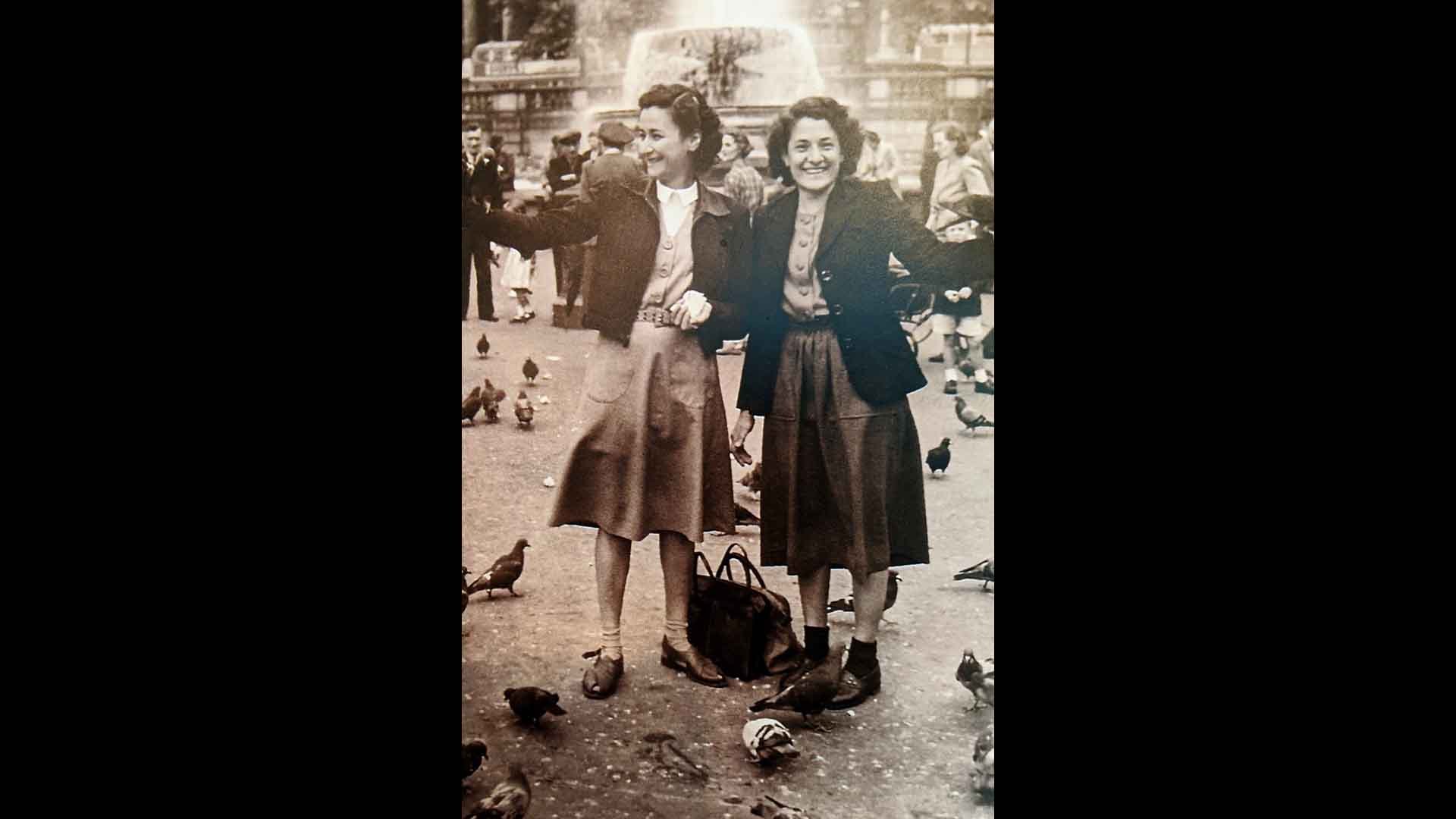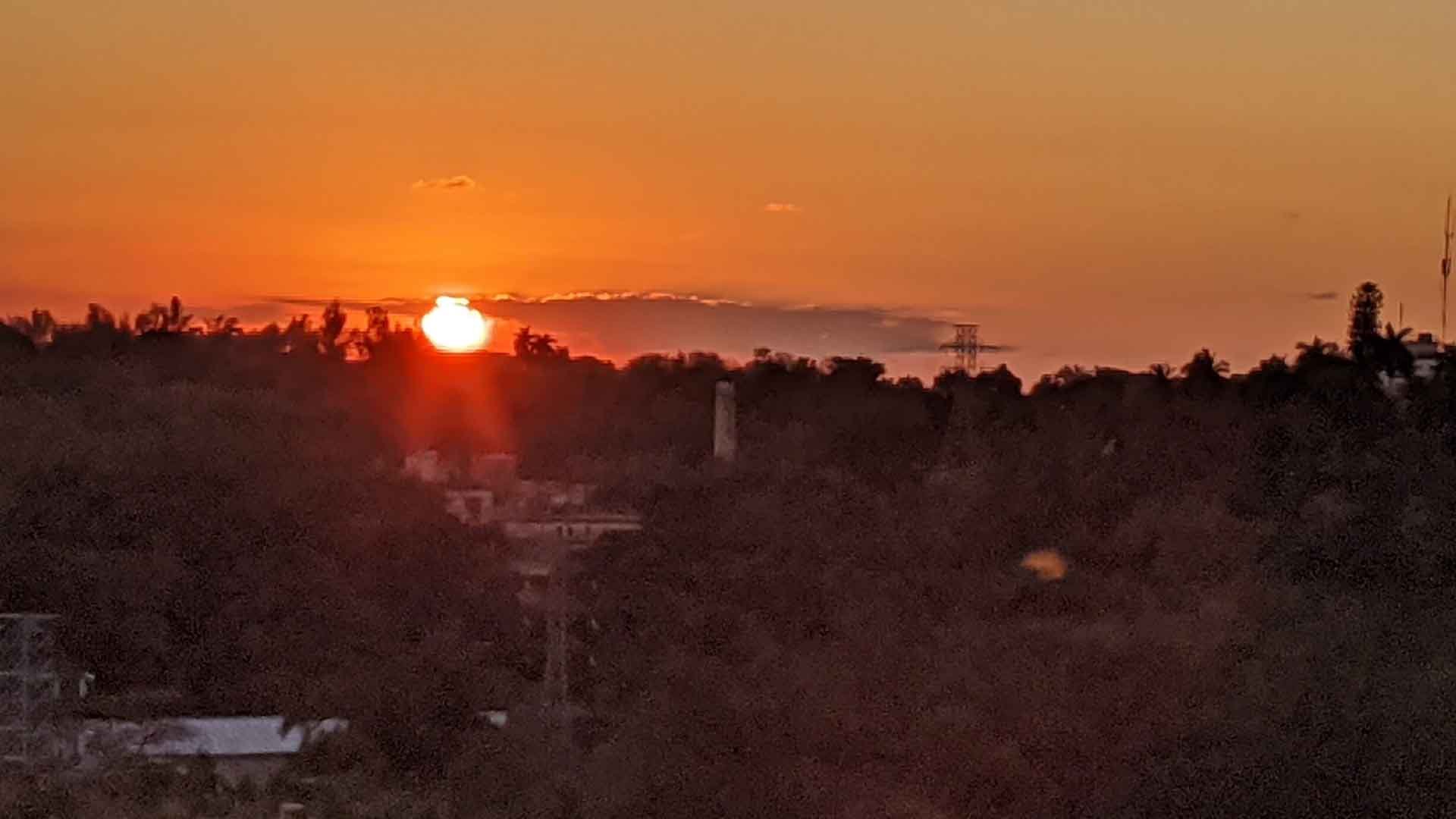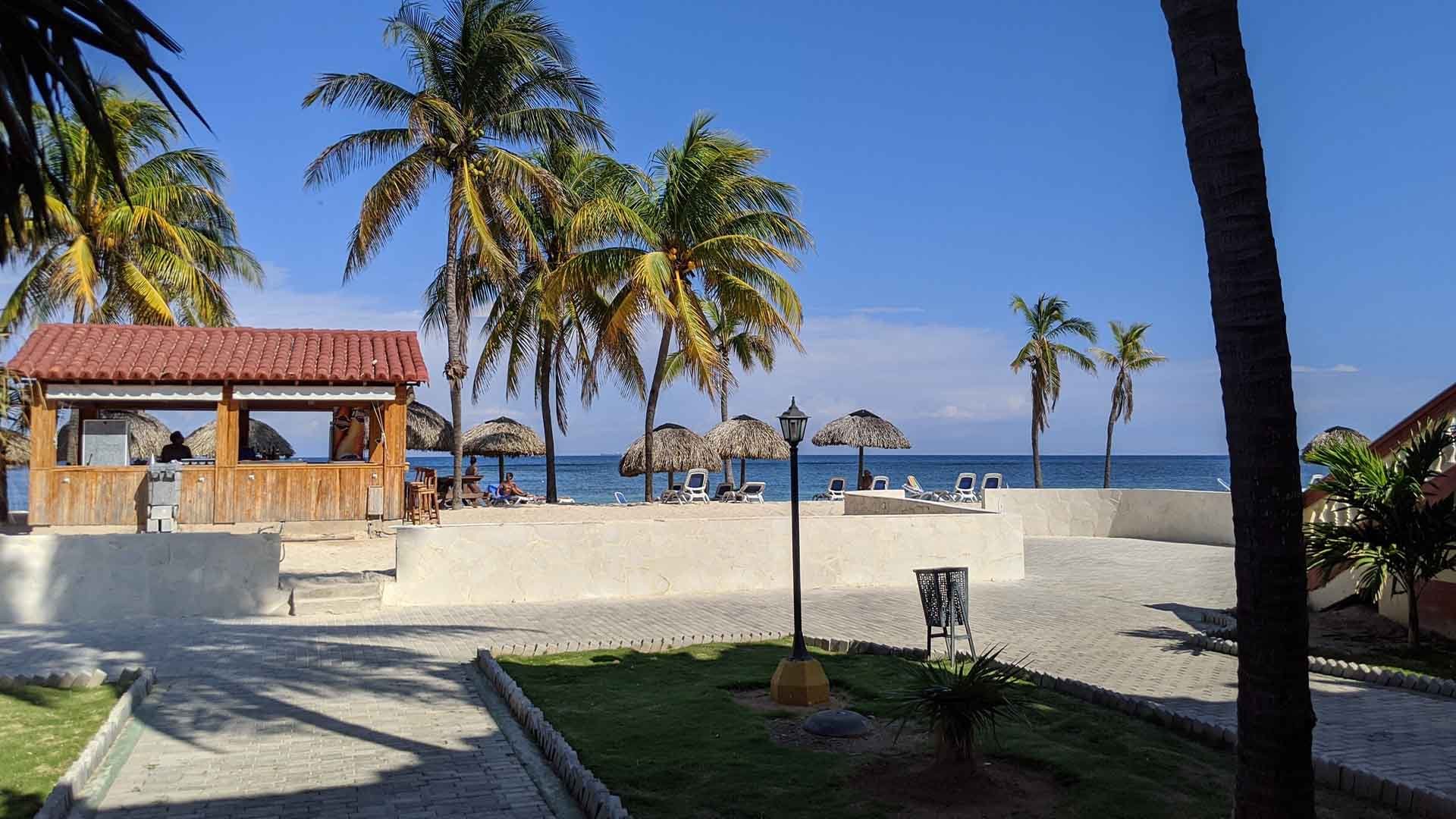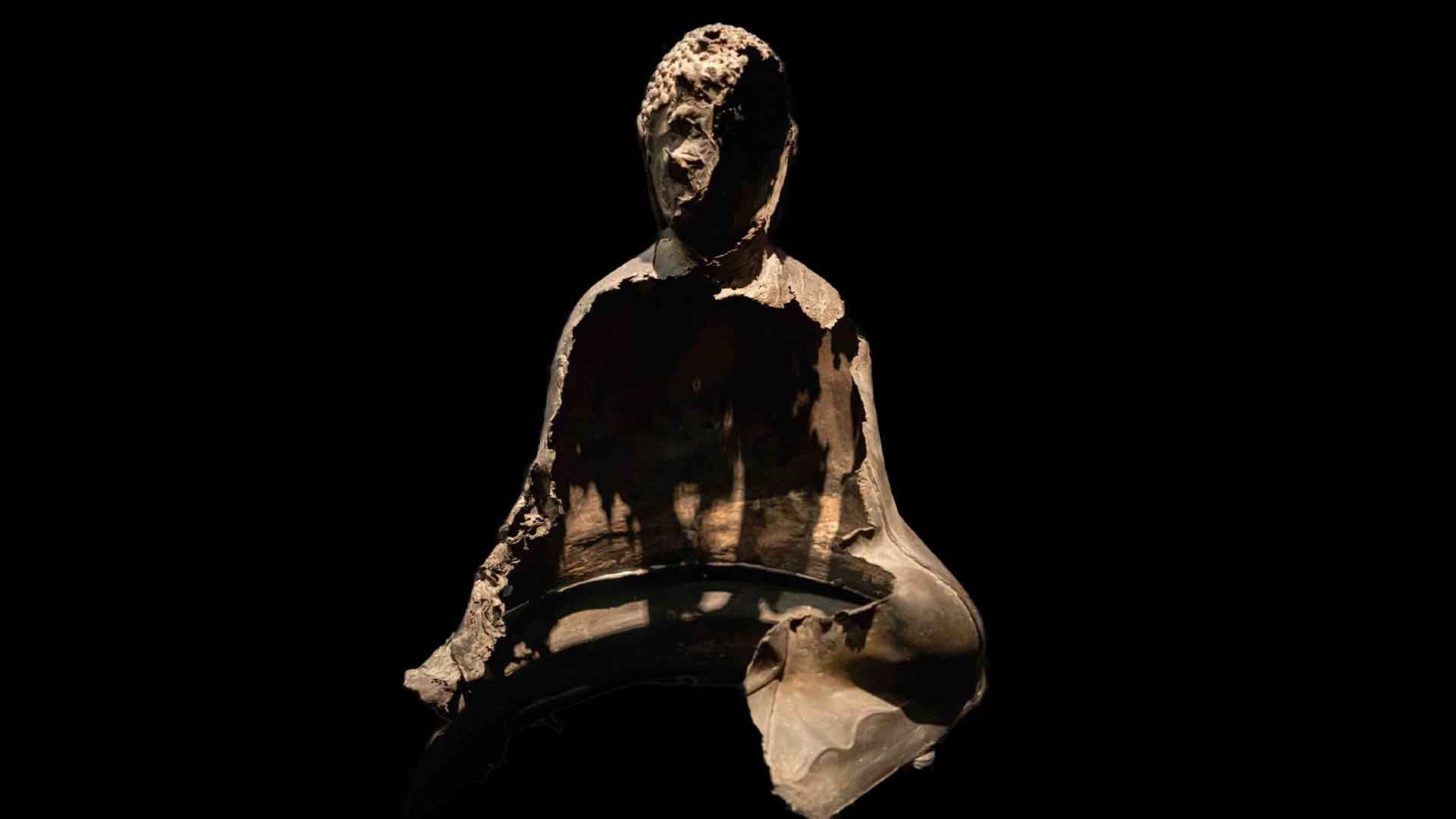Even when `cognitive articulations fail
Thanksgiving Sunrise Surfside FL 2022
Hester Panim/Eclipse of the Divine
“I was neither
Living nor dead, and I knew nothing
Looking into the heart of light, the silence.”
T.S. Eliot
“Eclipse of the light of heaven, eclipse of God-such indeed is the character of the historic hour through which the world is passing. But it is not a process which can be adequately accounted for by instancing the changes that have taken place in man’s spirit.
An eclipse of the sun is somethingthat occurs between the sun and our eyes, not in the sun itself….But when, as in this instance, something is taking place between heaven and earth, one misses everything when one insists on discovering within earthly thought the power that unveils the mystery.
He who refuses to submit himself to the effective reality of the transcendence as such—our vis-à-vis—contributes to the human responsibility for the eclipse.”
Martin Buber
The sun breaks above the razor sharp horizon
A tiny pink sliver at first
Peeking, sheepishly,
As if testing the landscape’s response
The clouds above and below open like a curtain
Welcoming the new day’s visitor
She cares not what we think or feel
She just gives of her radiance and warmth
And the world benefits
And nature bows to her majestic kindness
as life continues another day
Due to her largesse there are lush pastures of green
Open landscapes of rolling hills and vales
Carpets of forests and canopies
Her chlorophyll hides the true brilliant colors
Of the autumnal dying leaves.
The fauna in the lakes and rivers are warmed
As the mating season owes its loves to her
And nature is nourished once again.
Indeed she cares not
If she also burns and dehydrates
Causing fires and death
Heatwaves that kill millions
Parched deserts of drought
Oblivious to the poles or equator
We are the planets revolving around her after all
She is just there
Punctually
Daily
Showing up
Predictably
calculably
(even years ahead)
When she will make her entrances and when she will
take leave at sunset
Halachically we are guided by “neitz” and “shkiya”
Arguing incessantly as to the actual moment
She will enter the “vilon”
Or descend into the mikvah like ocean.
It is up to us
The receivers of her beneficence
To determine how to enjoy and survive with her life sustaining rays
And when to protect ourselves for fear of getting burned
Of not gazing at her directly
For fear of blindness
Of shading from her in the heat of the day
Her orange glow this morning seems so benign
The stuff painters will revel in, on their canvases
Trying to get the right hue of orange/redness.
People stand in reverent silence on the beach
and meditate ahead of the
Toil of the day
But soon she will ascend the Florida sky
And her brilliance will require protection once again
As we approach her zenith at midday
Until she makes her daily descent over the city landscape
Plunging me into and the world back into darkness.
It occurred to me that my metaphor of the divine has
been faulty, all along….
That my conception has been soiled by philosophy,
theodicy, history,
And my people’s victimhood
(after all just look at us mere decades ago)
That, for just a moment I might rather take a step into nature instead, and
Looking at our planet from out there in space
This singular azure blue globe with its wispy clouds
surrounding it and the deep blue oceans meandering across it
Could not have survived without her
That we as earth propel through the darkness of space along with our sisters
In an orbital dance around her
In exact proportionate spin
A precision in distance and nearness
to allow life and love.
Extending the comparison to our sacred texts
Like the warnings of Moses to the Israelites not to get too
close to the Divine rage
The fire that emerged suddenly and unpredictable when
those got too close to the Tabernacle
Or the Deuteronomic prediction that in the sinful future,
The face of the divine will be hidden (hester panim)
Allowing for all sorts of calamity.
In those hoary times there will be a total eclipse
And the earth will be plunged into spiritual darkness in
the midst of daylight sun
Her territory and domain encroached upon by the prince of darkness
Yet the phenomenon of eclipse remains,
built into the very fabric of our orbit
It’s bound predictably, calculably, to occur through no
“fault” of our own
Like the nature of human love
Whose eclipse of the heart follows the passionate love
And at times all is plunged into chaos and darkness
And only man’s heart of cruelty remains
To his fellow man, unspeakable crimes
Or to himself in destruction through his addictive
behavior, the amygdala of self-hatred.
Yet the sun remains hidden behind the eclipse
Patiently waiting to re-emerge
To formally take charge once again
Order shall now proceed
Chaos is forgotten
And the world returns to where it was
With the wasteland and the trauma
Burnished in the soul of recovery.
And once she reigns again
It is as if
Nothing had happened
All is returned to the ebb and flow of life once more
The day comes
The day goes
Sunrise and sunset resume
Is it possible that this sun reflects the very divine
Not only in nature but also in relation to earth to history
to us?
POSTSCRIPT
“The Present events are an affliction and that is an unbearable fact. We must contemplate this affliction in all its bitterness and without consolation while loving God as author of all things-including this same affliction-and as author solely of good”
Simone Weil “Attente de Dieu”
“The grand enigma of human life is not suffering, but affliction. It is not astonishing that innocents should be killed, tortured, flushed from their countries, reduced to misery or slavery, imprisoned in camps and cells—since we know there are criminals who commit these acts. Neither is it astonishing that sickness imposes long periods of suffering that paralyze life and make it an image of death—since nature is subject to the blind play of mechanical necessity. But it is astonishing that God has given affliction the power to take hold of the very souls of innocents and to seize them as their sovereign master. In the best case, the one marked by affliction only keeps half his soul. God himself cannot prevent what has happened from having happened. What better proof that the creation is an abdication? What greater abdication of God than is represented by time? We are abandoned in time. God is not in time. Creation and original sin are only two aspects, which are different from us, of a single act of abdication by God. And the Incarnation, the Passion, are also aspects of this act. God emptied himself of his divinity and filled us with a false divinity. Let us empty ourselves of it. This act is the purpose of the act by which we were created. At this very moment God, by his creative will, is maintaining me in existence, in order that I may renounce it. God waits patiently until at last I am willing to consent to love him. God waits like a beggar who stands motionless and silent before someone who will perhaps give him a piece of bread. Time is that waiting. Time is God's waiting as a beggar for our love. The stars, the mountains, the sea, and all the things that speak to us of time, convey God's supplication to us. By waiting humbly, we are made similar to God. God is only the good. That is why he is waiting there is silence. Anyone who comes forward and speaks is using a little force. The good which is nothing but good can only stand waiting. Beggars who are modest are images of Him. Humility is a certain relation of the soul to time. It is an acceptance of waiting. That is why, socially, it is the mark of inferiors that they are made to wait. "I nearly had to wait" is thetyrant's word. But in ceremony, whose poetry makes all men equal, everybody has to wait. Art is waiting. Inspiration is waiting. He shall bear fruit in patience. Humility partakes in God's patience. The perfected soul waits for the good in silence, immobility and humility like God's own. Christ nailed on the cross is the perfect image of the Father.”
Simone Weil "The Things of the World" The Simon Weil Reader, edited by George A. Panichas (New York: David McKay, 1977) pp. 423-4.
In The Dying of The Leaves
In the dying of the leaves
All summer the warm wind rustles the golden leaves
Like a shimmering of tea lights at dusk
It seems this will last forever
But now as the sky goes gray with the brooding clouds
And the morning wind chills the air
Everything looks to the impending gloom of winter.
Those once golden leaves turn all colors
Some redden into brilliant hues
Others into fall colors that make New Hampshire into a Persian rug.
The wind conspires with the trees to allow the leaves to fall
Its force and ferocity at times justly earning the title
of its “Windy City” locale
And ironically only in the dying of the leaves do
their true colors become revealed.
Who would have guessed that the uniformity of chlorophyll had been masking
Each one’s genetic uniqueness.
Who would have predicted this veritable luscious intoxication of color
A painter’s paradise of acrylic.
Where she once glorified in rustling through her branches
Welcomed for spreading pollen and fertilizing the next generation of flora
She now participates in the death throes
that will leave the tree bereft and skeletal
In its winter survival mode.
That same wind blew the crematoria ashes for miles
Leaving a frosty powder of victims’ skeletal remains
Covering the green grass
Of the countryside with its secrets
Europe remains a vast graveyard
The culmination of kultur and technology
The end of the experiment of the Enlightenment.
That wind heralded a new winter
A nuclear wasteland of the soul
With its newer genocides and atrocities
And the red bloodlust increases each time
with the use of “neutral” technology.
In the dying of its victims
Their true colors are revealed
A Persian rug of pain and suffering
A multicolored pastiche of human misery
The torturer’s brush uses tears instead of acrylic.
La Nom du Pere
Of fathers and Sons
Born 5 years after,
Father a refugee
Haunted by betrayal
His stern eyes
The Prussian ritual
The moderation
The survival
The refusal to emote
The son
Too soft
Crying too much
Evoking his rage
Skin color too olive
(Unlike the Viennese pallor)
The German nanny
The abuse
The hours under the stairs in the darkness
The fear evermore of the dark
The son asks for a blessing
Father is 101 years old, now
He places his hand on the son’s head
He hears the first word of the blessing
יברכך
And breaks down
Fathers and sons:
All his life
Unconsciously bearing the father’s survivor guilt
Trying to make sense of this insanity
Rushing to this or that solution
Kook, Chabad, Carlebach, Breslov
Freud, Jung, Hillman,
SHATZ, Frank, Scholem,
BESHT Degel Nachman
Only to be dashed against the rocks of reality
Theology implodes
The addictions that promised momentary solace
Work, rage, ETOH, porn, validation in religion, hospital army
Nothing alleviates the impending sense
That all the struggles
All the rationales
All the texts and trajectories of theological understanding
Of the rational left hemisphere,
Leave this cosmic gap
This holy vacuum
A Chalal hapanui
Of the heart
As if
Everything that moved, motivated and pushed
This child
Who already at nine,
Sensed his impending demise
Fast forwarded 70 years
Seeing his image facing his death
Without meaning
Awaking in a panic in the night.
Now at the end of things
The end of his prime
Having solved nothing
Found nothing
Dis-covered only we are reflecting a gaping chasm
Between doctrine and reality
Theology and absence
Meaning and insanity
That all language and truth went up in the smoke of the crematoria
(Anything less would be a disservice to the memory of the victims.)
He throws up his hands
In defeat
Refusing to accept old orthodoxies
Unbelieving the new latter-day saints
Realizing its mimicry
A pantomime of sorts
Left alone
Facing the failure
Of nerve
Of daring
Or heresy
We have awoken from a 70-year-old coma
(like Choni)
But unlike his venture into the Beis Midrash
We
See the fragments of what once was..
The vibrant yeshivos now reconstructed
Like zombies
Like never before
Thousands sitting and learning
Shteiging away
And hassidic look-a-likes
Piously shockling in their designer shtreiml’s
What is our task?
The task I failed at?
To pick up the fragments,
To view what we can reconstruct,
To salvage whatever we can from the rubble
Of millenia-filled sacred texts,
To make sense of what makes sense
In this nightmarish post-Tremendum world
Where nothing has been learned
From those exhortations to be kind
But so much from the minutiae of halachic constructions.
Let’s see which texts were predictive
Which Masters understood the darkness within
Who foresaw the catastrophe?
Nothing has changed outside the texts
Man’s inhumanity-to-man persists unabated
The ferocity in the heart of man
The dark soul within
This demonic soul
Did we have a Nietzsche? A Kafka? A Simone Weil?
Who could hold both the weight of tradition and the insanity of genocide?
Would the Piacetzna have said and claimed what he wrote
before his deportation
About Divine Weeping
Had he known a million babies went up in smoke?
Awakening from this coma
We too failed,..al chet
For we too gave up on the Ribbono shel Olam
(As the Klausenberger Rebbe claimed that first Yom Kippur
In the DP camp.)
Facing failure
Refusing the old doctrines
We are left in this gap
Of Holy dis-belief
Of Holy atheism
Of Holy apikorsus
This, my father,
Is what I have to transmit to my sons
This will disappoint you no doubt
For you believed in simple Emunah
And hated my forays into Midrash and Chassidut
“he thinks too much”
Maybe you are right
maybe the only way forward
Is survival alone,
And transmitting the doctrine to the next generation
But you forgot once again this pesty kid
Born five years after
Condemned to struggle
Yearning for the Great father in heaven
Yet giving Him the finger
For what he did to His children
And still asking you to bless me.
Eric Sargon Sept 4th 2022, Salome Worch
Eric's Notes
He’s playing the slow movement of the Mendelssohn violin concerto
The Andante..
His arthritic fingers vibrato on the strings, to produce
A sound, mellifluous like an aged Pinot Noir
His wrist moves the bow of experience
His wrist fluid yet strong
Worshiping the Muses
Of 60 years of muscle memory
With the mastery that only comes with decades of passion
To this art.
As the music emerges from instrument and player
I see musical notes flying up heavenward
And my mother
Who played this very piece in the Royal College circa 1941
In her velvet black evening gown
With her long neck bent over the instrument
Listening now
From above intently,
for the correct intonation, pauses, technique and mastery
for she would tolerate nothing less from her young brother.
His face now identical to Dada’s
The austerity genetically marked forever.
The self-discipline and self-demands now internalized
The refusal to indulge in musical emotionality,
No, the feeling must emerge only from the technique
The complete understanding of the composer’s intent alone,
Old school.
So ironic, despite the youthful years of trauma, isolation from friends,
Sports, socializing, (for Dada would insist he needed to practice, practice,)
He became the most sensitive human beings
Caring only for others
Always kind and considerate
I still quip to my kids
“when I grow up I want to be like Uncle Eric!”
The last sibling to survive
His sisters’ absence is palpable.
Now the “gentleman of Jerusalem” in his 90’s
Barely able to walk
His legs giving out
His balance off,
But once seated on his perch
Immediately regains mastery of his life through his instrument,
It is the violin shaped luchot that carry him,
Its letters, the musical notes (and tears) that now flow.
Much like the Hebrew letters flying off the Luchos
In response to our communal idolatrous orgy
Slipping into our familiar addictions,
When this so-called savior doesn’t show up to rescue us,
There now develops a tug of war with the Divine,
wishing to retrieve the tablets
And Moses holding on to them for dear life…
Until the letters flew off in protest
Too holy for this people,
The tablets now became too heavy to carry and fall
Smashing to the ground.
Here too I see the notes flying off
His aged, wooded viola’s tones
Wafting up in a spiral smokey plume
Like incense,
The music dissolves into the black dots and crotchets flying
Bearing with them the soul of the player (or is it just the listener?)
Demanding answers to the question why?
In his music he reaches places his intellectual mind does not (dare?) enter.
In the andante he explores the very tragedy of our family
The genetic traits that allowed Dada
to both push him to his limits
as well as write his heresies,
And this sweetness from all this suffering
opens my broken soul to feel what it feels.
The Hebrew letters and the Mendelssohn’s notes are one and the same
Reflecting his grandfather’s attempt
to salvage the lost letters of his faith for modernity
And the musical cries of “Hear ye Israel” [1]
Now wafting in his sweetness
Drowning in the sound
The tears mix with the notes
And carry them up to Mum
These tears are full of rage and little acceptance
But Mum would surely approve
Of her virtuosi brother (so virtuous) and his broken listener
Hymns to the drowning,
Unable to swim in the ocean of grief
Rage rage in the dying of the night…
[1] Oratorio Elijah
Photo: Todd Rosenberg
Pangs During a Glorious Performance
Orchestra hall is hushed awaiting the entrance of the soloist
The anticipation in the air is palpable
It has been so covid-long
Since I sat in this hallowed sanctuary
Having brought my grandchildren here last
For the Italian concerto
I have returned
Albeit be-masked like the other worshippers
Bathed in the yellow warm light of this circular temple
Facing the majestic organ pipes at attention like soldiers.
Suddenly the door opens, and in she floats,
A low-cut gown, midnight blue, straight then flaring at the bottom
She glides across the stage like a mermaid
Slowly she removes her black mask
And places it (with disdain?) on the concert master Chen’s music stand (!)
I cannot describe her performance better than Johnson (below)
But found myself weeping in the Larghetto
Solti’s orchestra revealing the greatest string section in the world
The lush svelte sound so unique to Chicago
Was the perfect partner to the mastery of her 40-year-old career.
When music moves me it is like love-making,
At the center of the experience is this Rilke-like sense of the tragic
That death is the pure counterpoint to this sublime
That these few moments of exalted spiritual experience
In life, merely reflect its ironic and tragic at its core.
These precious moments lie in stark contrast
To both the mundane, the routine, the dulling of the senses of the ordinary
How we have anesthetized ourselves from the horrors of the outside world.
Later I am overwhelmed by a sense of impropriety..
(beyond the fact that only here-
among the intellectuals and music lovers of Chicago
Sitting between their dress ties and gowns
in the box section- am I acutely aware of my difference
My yarmulke screaming out
my embarrassed ethnicity to one and all)
No, what overcomes me are the memories of Ukraine,
the military hospital, the blast injuries,
the impending doom that awaits.
Here I am sitting in this rarefied temple of kultur and refinement
Listening to what arguably might be
the greatest performer and orchestra of this concerto alive,
In this perfection of sound and acoustics,
Among the gentile class of music lovers I share with,
While that horror is going on a plane ride away.
And my thoughts go back to Warsaw Ghetto and Mariupol
And a possibly similar scene during the war
when the Berlin Philharmonic played
And good upper class educated sophisticated German citizens
listened enrapt by the wizardry of Furtwengler,
In their evening gowns and tuxedos
While the crematoria burned.
In what moral universe does music and art get an ethical pass
No wonder after Auschwitz
the modern enlightenment project gets called into question
No wonder we have learned to split and detach
as if geography prevented leakage of the horrors
Into our hermetically sealed music halls and psyches.
Tonight I am complicit.
Matan Torah 2022
History,
Revelation,
Our myth of Sinai returns now for celebration
Ritual and community.
Special food for the palate and flowers for the sanctuary.
The long line from revelation to exile to redemption
Rosenzweig’s trinity of history,
Yet in our century all has been rehearsed
All has been encapsuled
The failed secular messianic movements
The failed dictatorships
The secular theologies of flag county and honor
One big experiment in social engineering that only led to ethnic cleansing.
From the European of learning to Auschwitz to Yom Yerushalayim
Giddying changes for our community.
Before our eyes within decades,
The desert blooms,
The county thrives,
Start-up nation attracts billions from investors globally
Women’s revolution in Torah bringing
the new gift of insight into our sacred texts
Technology and torah allowing us the dizzying mastery
of 2000 years with one click
(except on Shabbat when we return to our “am Haaretz status”)
But recently the tiny RNA virus that toppled our lifestyles
Recalibrating work and play where economies toppled
and nations blamed each other.
And the horrors of another war
of man’s inhumanity to man,
To remind us of the darkness within,
That is destined to boil over volcanically every century
Making that post WWII 70 year calm another aberration in Hegelian history
A blip in the centuries fighting over a piece of real estate…
Now we return to that normal,
Europe’s soil hungers for blood and must be satisfied with more.
Yet here we are
We dig once more into texts of Decalogue and Ruth and the Degel
Of self-understanding as a covenantal community
As well as on the individual trajectories
The personal miracles
The personal revelations
The renewal of commitment to recovery and healing
The openness to transcendence
The time to reflect and meditate on another year
Of learning
Of growth
Of optimism in the face of darkness.
Yizkor seems to mar the festivities
But that is our genius
For loss and trauma are never far from joy
Like the glass we break under the chuppah
We must remember those we lost
Moving from grief to an etching of love and memory
In the heart.
We have created this monotheistic ideal
Yet Schechina is down here with us
A matrix of love and
Suffering alongside us quietly
She wears at times a black bodice
And longs for her beloved
Trapped with us in an eternal exile.
We take all of this
On the macro level- as a community among others
As a nation state among others
And as individuals within communities
And struggle with seeing our tradition as once more relevant
Its ideals and mission
Its promises and utopian messianism
The myth of Matan Torah
Forgive Me
Forgive Me
Reb Melech
I know it was your Yahrzeit
All the chassidim flowed in
Krakow is a sea of black,
For those who came to participate in the new industry
(Charedi Kivrei Zadikkim tourism)
I was being driven to the border past Reyshe / Rzeszów/Lancut/Lizesk
On the highway racing past you…
Thinking how many times I prayed by your tziyon,
Wondered how all types of chassidus come together by you,
You somehow bring us/them under your unconditional love
Even broken souls like me.
REMAH
Forgive me too Rav Moshe (Isserless),
I used to stop by you on the way to Lizesk
A nod to my Oberlander father
Reassuring him that even the Satmer Rov
Omitted “veyatzmahk pirkunei”
The gravesite is quiet in the chilly brilliant spring sunshine
(The tree grows over your tziyon, just like in the photos
from the turn of the 19th century)
no cannon ball holes piercing your tziyon
(like the Chozeh!)
Stopping by the cradle of minhag Ashkenaz in deference to you,
Don’t worry Dad I used to say, the stylish move to chassidus
Does not supplant your minhagim…
It was theological not behavioral!
Then I look for the Megaleh Amukos
(on whose matzevah is inscribed: “he had gilui Eliyahu x3”) !!
But Rabbosai, you know there Is this war going on,
Next door, across the border
While you both rest peacefully,
Yet for an inexplicable reason
I felt the need to come here
To be here
Despite my wife’s exhortations
(the Ukrainian NAZI’s were the worst butchers in WWII)
Despite the AZOV fighters’ NAZI insignia
Despite the steely eyed soldiers guarding the fascist cross
By the lake where we do tashlich in Uman
And the assaults on chassidish kids on the streets of Pushkina
Despite history..
At the border
I see thousands of women and crying children
lined up by the border heading into Poland
Images of the forced lethal marches circa 1944
Each carrying a heavy heart and a wheely, leaving for safety
Leaving behind their loved men to fight
It’s an epic story of human misery and transmigration
I feel I am in a movie set
This long line in the no man’s land between war and safety.
Once again Europe drips with blood.
I am filled with pride as I see the Israeli flag on red medical volunteer suits
Literally hundreds of volunteers yelling in Hebrew
even units of Israeli medic soldiers help out
with their tents, food and equipment, truly a kiddush Hashem.
I walk in the opposite direction to the refugees,
so my path is clear, and I feel a loneliness
As I am walking into the fray.
An Israeli Major sees me stumbling carrying bags
of heavy donated equipment and insists on
helping me.
Four bubbly Israeli volunteers offer me fruit
from their supermarket cart they are taking to the
other side where thousands wait in line in silence.
I want to hug each one.
I volunteered in 1972 as a medical student during the Yom Kippur War
Now memories of those same whiney sirens surface
as we descend into the shelter.
For all the talk, writings on Post Holocaust this and that,
I need to be here…
“Never Again” applies to all human beings
So please forgive me Reb Melech and RAMO
I will come back on a better day.
Dad blowing shofar Jan 30, 2022, at age 101


















